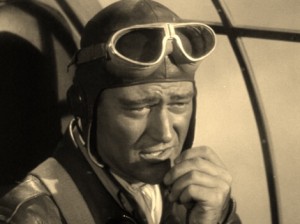 Laytiesan/ chuntel-men, dee cap-tane infohmsyoo dat/ we have star-teed/ ouer dee-sent to Malpentsa hairport/ were we’spect/ too land innabout twenny minits…we ‘ope yooo had a/ pleeezant/ flight….Arrivederci.
Laytiesan/ chuntel-men, dee cap-tane infohmsyoo dat/ we have star-teed/ ouer dee-sent to Malpentsa hairport/ were we’spect/ too land innabout twenny minits…we ‘ope yooo had a/ pleeezant/ flight….Arrivederci.
On occasion, I have been one of those wretched souls who fly a foreign airline and depend on the English announcements to make sense of what’s going on during the flight, considering that they don’t understand the airline’s national language.
The way non-native crewmembers speak English is most often a hurried phonetic rendition of the standard announcements—which make quite a bit of sense in written form, but are almost entirely useless when rattled out by rote and fifty percent faster than they should be. That is, if the idea is to convey some meaning—which is probably where I’m mistaken.
I’ve recently flown an Italian airline that shall remain nameless (besides being traditionally worthless) to France and back. The stern-looking cabin crew produced several obscure announcements in English, whose main purpose seemed to be showing how fast they could get to the final Tk’yoo and how dead-on their English intonation was.
Unfortunately (for the non-Italian speakers), their delivery was indeed faster than any human could comprehend but their intonation was all over the place. You could tell that one particular crewmember was taking special pride in producing authentic nasal sounds that most Italians can’t master and slurring her words in a supreme attempt at great fluency. The final result was grotesque and lacked the distinctive sound and cadence of English. I’ll bet many foreign passengers mistook it for another language altogether and tuned out.
To compound this, once the Italian-speaking passengers had heard the first announcement in their own language, they resumed their chatter and blotted out most of the droned message that followed in—uh—English, I guess.
In my 40+ years of flying, I’ve rarely come across non-Anglophone cabin crews who made an honest effort at being understood as opposed to reveling in the sound of their own voices over the PA system.
This applies to flight crew as well. Many captains or first officers seem to cultivate the laid-back and gravelly voice of old American pilots. Up there in the cockpit, they close their eyes, key the mike to talk and see themselves as John Wayne squinting at the Pacific from the open cockpit of his P-40.
How much of their narcissistic warbling is understood by their human cargo is the last of their concerns.
